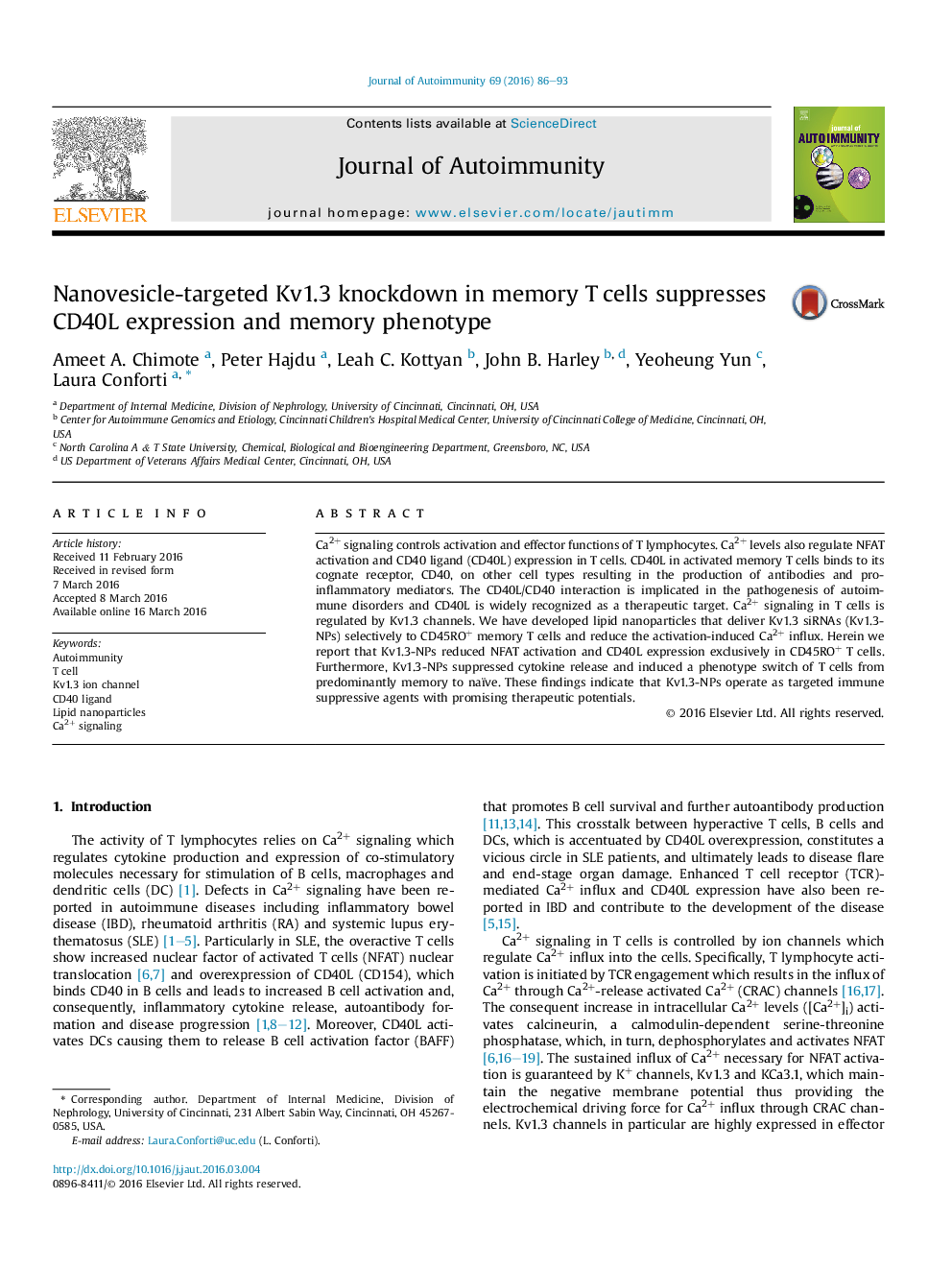| Article ID | Journal | Published Year | Pages | File Type |
|---|---|---|---|---|
| 3367670 | Journal of Autoimmunity | 2016 | 8 Pages |
•Nanoparticles that selectively silence Kv1.3 channels in memory T cells were used.•Nanoparticles selectively reduced CD40 ligand expression in memory T cells.•Nanoparticles reduced number of memory T cells.•Promising therapeutic potential for Kv1.3 silencing in autoimmune diseases.
Ca2+ signaling controls activation and effector functions of T lymphocytes. Ca2+ levels also regulate NFAT activation and CD40 ligand (CD40L) expression in T cells. CD40L in activated memory T cells binds to its cognate receptor, CD40, on other cell types resulting in the production of antibodies and pro-inflammatory mediators. The CD40L/CD40 interaction is implicated in the pathogenesis of autoimmune disorders and CD40L is widely recognized as a therapeutic target. Ca2+ signaling in T cells is regulated by Kv1.3 channels. We have developed lipid nanoparticles that deliver Kv1.3 siRNAs (Kv1.3-NPs) selectively to CD45RO+ memory T cells and reduce the activation-induced Ca2+ influx. Herein we report that Kv1.3-NPs reduced NFAT activation and CD40L expression exclusively in CD45RO+ T cells. Furthermore, Kv1.3-NPs suppressed cytokine release and induced a phenotype switch of T cells from predominantly memory to naïve. These findings indicate that Kv1.3-NPs operate as targeted immune suppressive agents with promising therapeutic potentials.
